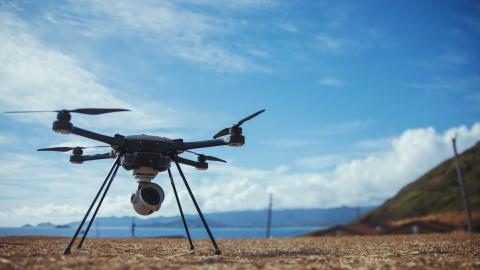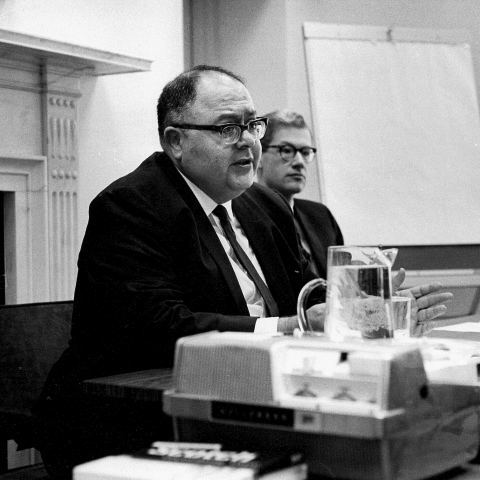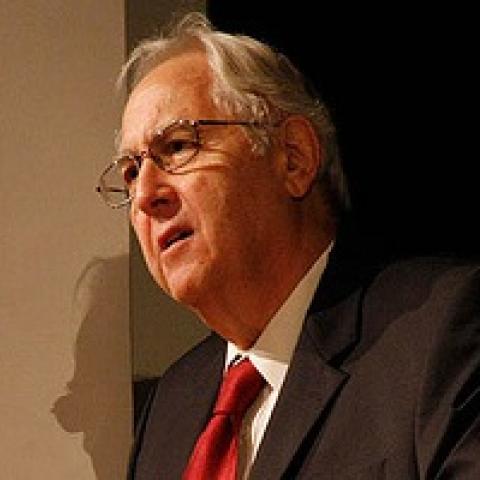Donald Trump is right about one thing -- so far his campaign has been incredibly successful. Despite his narcissism and his ad hominem attacks on other candidates and people who annoy him, he told his Nashville, Tennessee, audience:
This is a movement. I don’t want it to be about me. This is about common sense. It’s about doing the right thing.
At the beginning, many thought The Donald would flame out, but now it seems that some in the media, like Noah Millman at The Week, are not only accepting that his campaign is a serious threat to other Republicans as well as to Democrats, but that it might not be so bad if he actually got the nomination.
Others, like the conservative political analyst Henry Olsen, argue the following:
Trump may have more appeal among tea-party and “very conservative” voters than among others, but he is primarily a protest candidate for the angry of all persuasions. Unless he can somehow persuade women, the college-educated, and those from the center and the center–left of the GOP to change their minds, he is very likely to find his upside limited as other candidates start to drop out, assuming that he is in for the duration. This suggests that an establishment alternative will still have the advantage, passions unleashed by Trump notwithstanding.
But as successful as Trump’s campaign is now, there is a lot that can happen before the primaries and the election. As Michael Isikoff pointed out, Trump has a number of lawsuits pending against him which could cause a snag. As much as the Republican base claims they do not want a member of the political class, when it comes down to it, I think they will turn to a candidate who has a successful conservative political record of getting things done.
Here are my thoughts on what could happen as the months go by.
A Winning Republican Ticket That Does Not Seem Likely Now
If a Republican is to win the Electoral College vote, he has to get the support of the majority of Republicans, traditional Democrats in blue states, and a good share of independents. The candidate best poised to do that -- and so far, he’s still near the bottom in the polls -- is John Kasich, governor of Ohio. This might not help him with conservatives, but Democratic columnist Frank Bruni has made a case for him:
He won re-election [as Governor of Ohio] there last year with 64 percent of the vote. That largely reflected the weakness of his Democratic opponent, but Kasich’s current approval rating in Ohio of 61 percent affirms his ability to please a constituency beyond Republican partisans and to attract Democrats as well. His popularity with the voters who know him best came through in a recent poll showing him well ahead of Donald Trump among Ohio Republicans.
By cutting taxes and controlling spending in Ohio, he proved his conservative bona fides, at least on fiscal issues, something being stressed in a clever new commercial – note the female and black faces, along with the use of the moon landing to capture a yearning for American greatness -- that’s being shown in New Hampshire.
No candidate for president can win without Ohio. Florida is crucial as well, and if Marco Rubio ran as Kasich’s vice president, the Republicans likely would have a successful ticket.
Trump Erodes, Walker Benefits
I believe Trump’s support will erode and the people will choose a conservative candidate with actual political experience. Since Kasich shows no sign so far of gaining enough ground, that leaves two candidates who might actually receive the nomination: Ted Cruz, who is hoping to inherit Trump’s supporters and has big bucks behind him, and is working hard to prove that winning key southern state primaries will generate similar results in other regions of the country; and Scott Walker.
Of the two, I pick Walker as the eventual winner because of his record and his proven ability to win elections in the blue state of Wisconsin. His recent TV appearances and his foreign policy address the other day show that he is improving his performance and seriousness. Also attractive is his Midwestern persona and ability to relate to regular folks without the bombast and denigration of opponents on display with Trump. (Ben Carson also has these traits, but again I think his lack of political or executive experience will sink him.)
I don’t think the Republican candidate will be Jeb Bush. I have to agree with Trump here: Bush seems low energy, which makes you wonder if he really wants the grueling job.
The Uncertain State of the Democratic Party Changes Everything
I believe Hillary Clinton will be forced to pull out of the campaign -- for personal health reasons, of course -- and the Democratic field will be wide open. The polls show that when asked for a word that best describes a candidate, Hillary produces, “liar, dishonest, deceitful,” etc. Those are characteristics not likely to inspire voter confidence.
When that happens, perhaps in fall or the beginning of winter, Joe Biden will step in, running slightly to the left of Obama and to the right of Bernie Sanders, yet making it clear that his presidency would essentially be a third term for Obama.
Unlike the situation in the Republican Party where Trump is solidly ahead and staying there, Sanders still is not that much of a threat to Hillary Clinton. Nevertheless, his poll numbers are showing he will most likely win New Hampshire (as Eugene McCarthy did in 1968), and he is actually within the margin of error in Iowa. He continues to draw huge crowds, and the electorate is responding to his frank assessments: the middle and working-class are stagnating or falling behind, wages have not kept up with the cost of living, and just managing to pay for essentials is a weekly struggle for more and more.
He has not yet made any major foreign policy statements either in his speeches or on his campaign site. Yet he responded strongly on ABC's “This Week with George Stephanopoulos” on Sunday to tough questions from anchor Martha Raddatz. He clearly does not want to be known as a left-wing isolationist, and although he was weak on specifics, he said that he would use military force when absolutely necessary. He favored a strong military as well as a fight against ISIS.
Like other doves, however, he strongly supports the deeply flawed Iran deal.
Despite the left-wing base of the Democratic Party, Sanders will not be able to win the nomination. His open espousal of democratic socialism and his desire to move our country to a single-payer system and to use the government to redistribute wealth, as well as to increase entitlements that would bankrupt the United States, will ensure that.
If Joe Biden enters, he will pass Clinton quickly in the polls even if she does not drop out. Jim Webb, who opposes the Iran deal, does not have much of a chance to be the Democratic candidate; the current Democratic Party is far removed from the strong national security party of Harry Truman’s days, or those of the brief presidency of John F. Kennedy. So if Biden does become the nominee and chooses someone to the left like Elizabeth Warren as his running mate, the Republicans should have an easier time of winning, unless they blow it.
The ball lies in the GOP’s court.














